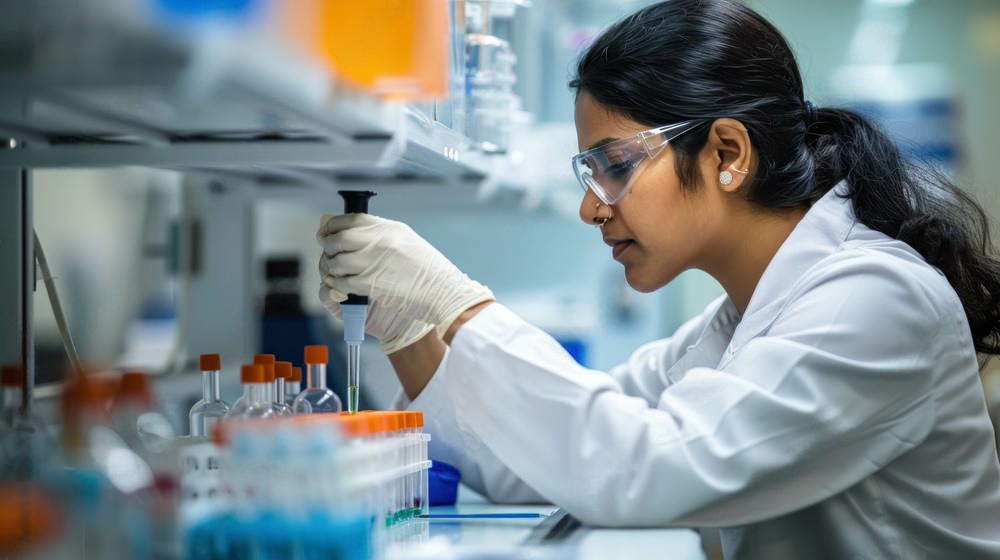BMLT
Bachelor of Medical Laboratory Technology (BMLT) Course at Victoria College of Nursing & Paramedical Science
Course Overview: The Bachelor of Medical Laboratory Technology (BMLT) program is designed to equip students with the knowledge and skills required to perform diagnostic tests and analyses in medical laboratories. This course focuses on various laboratory techniques and the management of laboratory operations, ensuring that graduates are prepared for roles in healthcare settings.
Curriculum Highlights:

Core Subjects:
- Clinical Biochemistry: Study of biochemical processes and laboratory techniques used to analyze bodily fluids.
- Microbiology: Examination of microorganisms, their identification, and the role they play in disease.
- Hematology: Focus on blood-related tests, including the analysis of blood cells and coagulation studies.
- Pathology: Understanding disease processes and how they manifest in laboratory results.
Laboratory Techniques:
- Training in various laboratory techniques, including blood sampling, specimen processing, and equipment operation.
Quality Control and Assurance:
- Emphasis on maintaining high standards in laboratory testing and ensuring the accuracy and reliability of results.
Health and Safety Regulations:
- Education on safety protocols and regulations to ensure a safe working environment in laboratories.
Research Methodology:
- Introduction to research principles, enabling students to understand and participate in laboratory research.
Clinical Practicum:
- Hands-on experience in clinical settings, where students apply their theoretical knowledge to real-world laboratory situations.
Course Duration
The BMLT program typically spans three years, consisting of six semesters. Each semester includes a blend of theoretical coursework and practical laboratory training, providing a well-rounded education.
Job Opportunities After BMLT
Graduates of the BMLT program have various career opportunities in the healthcare sector. Some potential job roles include:
Medical Laboratory Technician:
- Perform laboratory tests and analyses, assisting physicians in diagnosing and treating patients.
Laboratory Supervisor/Manager:
- Oversee laboratory operations, ensuring compliance with regulations, managing staff, and maintaining quality control.
Clinical Research Coordinator:
- Manage clinical research projects, coordinating activities between research teams, participants, and regulatory bodies.
Quality Control Analyst:
- Ensure the accuracy and reliability of laboratory results by implementing quality control measures.
Microbiologist:
- Work in laboratories focusing on the study and analysis of microorganisms, contributing to disease diagnosis and public health.
Blood Bank Technologist:
- Specialize in blood collection, processing, and transfusion services, ensuring the safety and efficacy of blood products.
Hematology Technician:
- Focus on blood-related tests, including hematological analyses and blood cell counts.
Pathology Technician:
- Assist pathologists in examining tissue samples and preparing slides for diagnosis.
Infection Control Practitioner:
- Work in hospitals and healthcare settings to monitor and prevent the spread of infections.
Pharmaceutical Sales Representative:
- Utilize laboratory knowledge to work in the pharmaceutical industry, promoting products to healthcare professionals.
Conclusion
The BMLT course at Victoria College of Nursing & Paramedical Science provides students with essential skills in medical laboratory technology, preparing them for a dynamic and rewarding career in healthcare. With a strong emphasis on practical training and laboratory management, graduates are well-equipped to contribute to patient care and public health initiatives.
